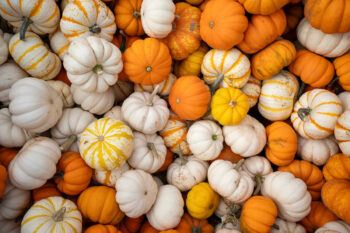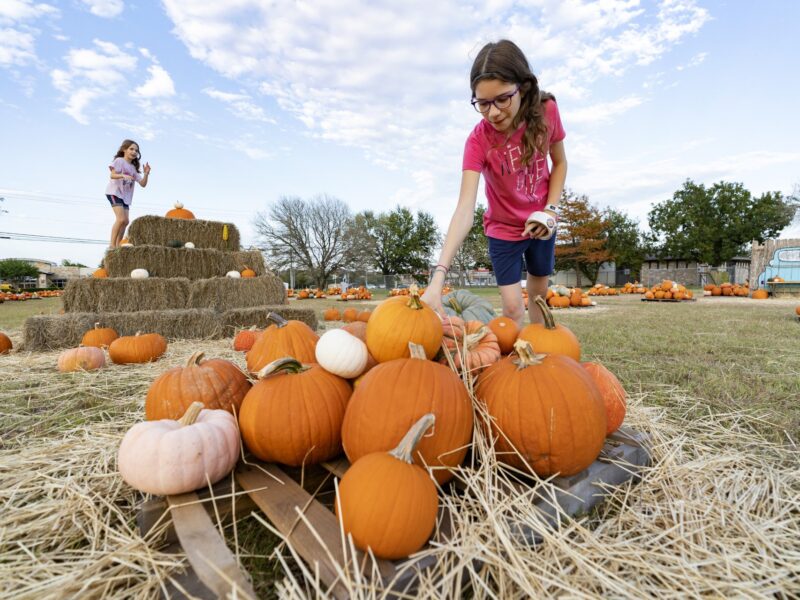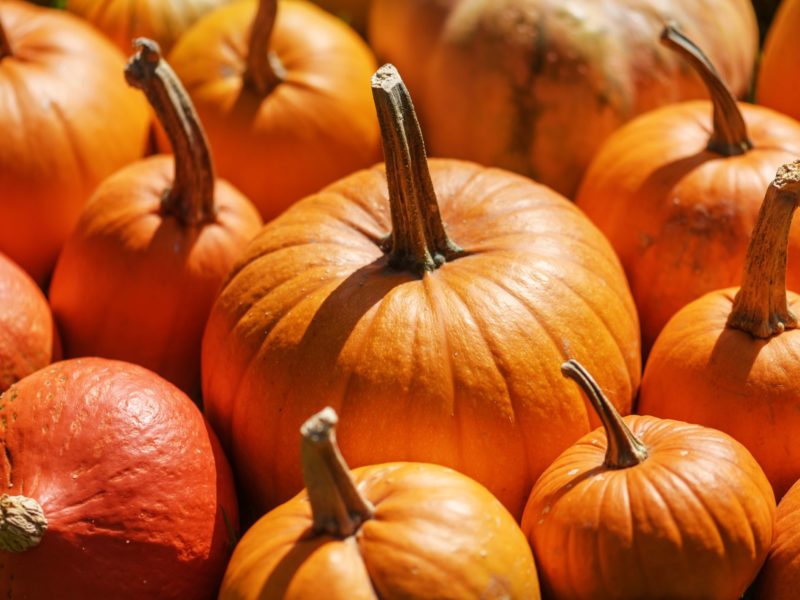Are Pumpkins A Fruit Or A Vegetable?

Inquiring minds might want to know, is the orange orb a fruit or vegetable? The answer may surprise you. A pumpkin is, in fact, a fruit.
Dr. Joe Masabni, Texas A&M Agri Life Extension Service vegetable specialist in Dallas, said scientifically speaking, pumpkins are a fruit simply because anything that starts from a flower is botanically a fruit.
Usually, fruits and vegetables are named according to how they are consumed. How people eat them versus how people see them is often different.
“We tend to identify them in relation to whether we eat them as a dessert, salad or food,” Masabni said.
Consider a cucumber or tomato. People don’t typically eat those as desserts; they eat them in a salad or cooked in a meal, so they became classified as vegetables, even though they are officially fruits.
“Pumpkins are a tricky one,” he said, “because some people make soups or stews from pumpkins, which is a meal, while others make pies, which is a dessert. So that can sometimes be confusing.”
The Difference Between A Fruit And A Vegetable
The difference between a fruit and a vegetable is established in how they grow.
“All plants start from seedlings,” Masabni said. “Let’s take the example of lettuce as a vegetable. It makes more and more leaves, and then you harvest it and eat those leaves. However, if you let it grow longer, it will eventually make a flower stalk and seeds for next year’s crop.”
A pumpkin starts the same; however, their flowers become the pumpkin we eat.
“It starts with a small plant and a few leaves, and as the leaves grow and more branches develop, flowers will start to bloom on the plants,” he said. “Those flowers then need to be pollinated by bees or other pollinators. Once that flower is pollinated, that flower develops into a fruit that we consume. So ultimately, any fruit relies on pollination of the flower to then grow the part of the plant that we eat.”
What Other Vegetables Are Actually Fruits?
Although we may typically base our knowledge of fruits and vegetables from their sweet and savory tendencies or where they are placed in our meals, it seems that many of our regularly thought of vegetables are actually fruits, simply because they come from a flower.
Some of those often mislabeled like pumpkins include cucumbers, olives, tomatoes, eggplants, avocadoes, corn, zucchini, okra, string beans and peppers.
Now the biggest decision is how it will be consumed at your own table this holiday season. Will you consider it a vegetable in your main dish or a fruit on your dessert plate?
“The fruit and vegetable debate is a fun one that hangs on the technical horticulturist/scientific view of these plants that we consume,” Masabni said. “At the end of the day, we want to inform people, but we also want them to enjoy these plants as gardeners and at the dinner table.”
This article by Adam Russell originally appeared on AgriLife Today.





